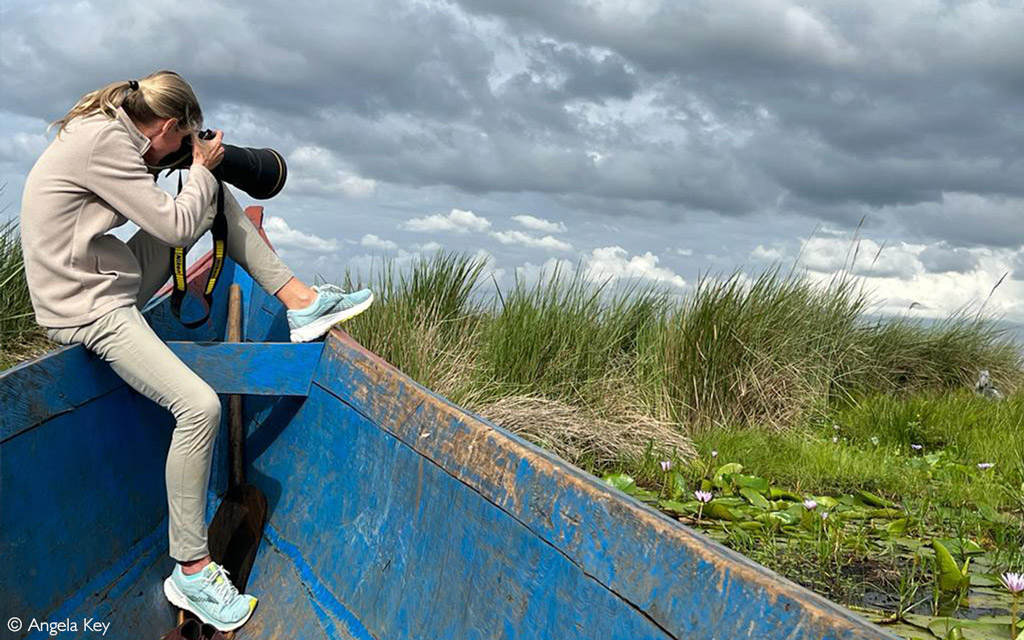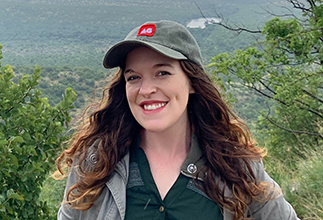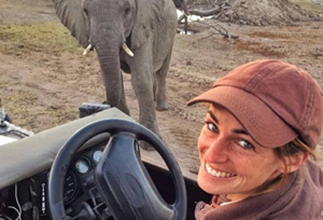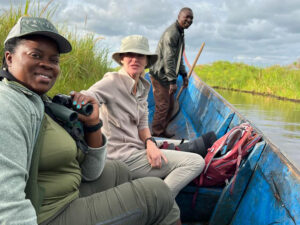
This is a copy of our weekly email newsletter. Subscribe here to receive the newsletter.
Science & tusker hunting + sleep under stars + spotting shoebills

This is a true story – that always earns me a few wry smiles in the telling. Years ago I was with a group of American safari clients on game drive, and one of them asked me where I am from. “I am African,” I replied. “No,” she said, “where are you originally from?” “I am African, born and bred,” I repeated, and they looked confused. So I asked them a question: “If I was to move to America and become a citizen, would you refer to me as African-American?” There was a thoughtful silence before the smiles broke out.
What’s this got to do with safari & conservation? Everything, because if we are to keep Africa’s biodiversity safe from abusive exploitation we need to step away from the social constructs that divide us and embrace our differences. teamAFRICA!
Keep the passion

Simon Espley – CEO, Africa Geographic
From our Editor – Taryn van Jaarsveld

Does the hunting of large-tusked elephant bulls lead to the decline of tuskers, and what is the impact on elephant population genetics? Since we released the news that two of Africa’s largest elephants were trophy hunted in Botswana, the debate over the hunting of Africa’s tuskers has been flowing in the stories section of our app (check out the comments on the original story, and the debate on our retrospective of the matter). In our first story below we take a deep look into the science surrounding the matter, and the effects of hunting older elephant bulls. This story is available exclusively on our app for the next few days. Get the app to view – it’s free.
On a brighter and lighter note: who needs 5 stars when you can have a gazillion? Could you imagine anything better than spending a night under the African sky, stargazing while tucked into a warm and luxurious bed? We’ve put our heads together to find the continent’s best destinations for sleeping out under the stars. You can find unbeatable prices on these destinations and more by checking out our collection of lodges. See our second story below.
Happy indulging in Africa to you all!

From our Scientific Editor – Jamie Paterson

The vast majority of those reading this are right-handed because that describes approximately 90% of the human population. There is an astonishing amount of research into human “handedness” and its relationship with everything from sports to health.
But did you know that elephants also favour their left or right side? In their case, however, it’s called “tuskedness“. Almost all elephants (>95%) favour one or the other tusk, with an almost even split between right and left tuskedness. The dominant tusk is used more frequently and thus wears down more than its subordinate. There is also evidence that they have a preference for rightward or leftward use of their trunks, though it is still not yet known how this relates to tusk use.
Behavioural lateralisation (the asymmetrical expression of cognitive functions) is observed across multiple animal families and makes for fascinating reading for those looking to fall down a rabbit hole. (After reading our stories, of course.)

Story 1
https://africageographic.com/stories/elephant-bulls-breeding-and-trophy-hunting/
ELEPHANT BULLS & HUNTING
Does the hunting of large-tusked bulls lead to the decline of tuskers & elephant population genetics? We examine the science
Story 2
https://africageographic.com/stories/sleep-out-under-the-stars/
SLEEP OUT UNDER THE STARS
Stargazing under African skies from a comfortable bed will add magic to any safari. Here are our top spots for sleeping out under the stars
Searching for shoebills with AG
 App subscriber Angela Key travelled to Uganda with AG. ? Navigating Mabamba Swamp with expert bird guide Harriet Kemigisha, Angela got up close with a shoebill, and was finally able to photograph the dinosaur bird in person. Check out Nkima Forest Lodge, within walking distance of Mabamba Swamp for excellent rates – and you could soon be in Angela’s shoes ?
App subscriber Angela Key travelled to Uganda with AG. ? Navigating Mabamba Swamp with expert bird guide Harriet Kemigisha, Angela got up close with a shoebill, and was finally able to photograph the dinosaur bird in person. Check out Nkima Forest Lodge, within walking distance of Mabamba Swamp for excellent rates – and you could soon be in Angela’s shoes ?
 WATCH: Why is this spot in the Congo Basin attracting so much attention? Scientists have discovered a massive peatland in the area – the most extensive tropical peatland on earth, holding 20 times as much carbon as the USA releases from burning fossil fuels in a year. See why conservationists are seeking protection for this area (06:34). Click here to watch
WATCH: Why is this spot in the Congo Basin attracting so much attention? Scientists have discovered a massive peatland in the area – the most extensive tropical peatland on earth, holding 20 times as much carbon as the USA releases from burning fossil fuels in a year. See why conservationists are seeking protection for this area (06:34). Click here to watch
To comment on this story: Login (or sign up) to our app here - it's a troll-free safe place 🙂.![]()






